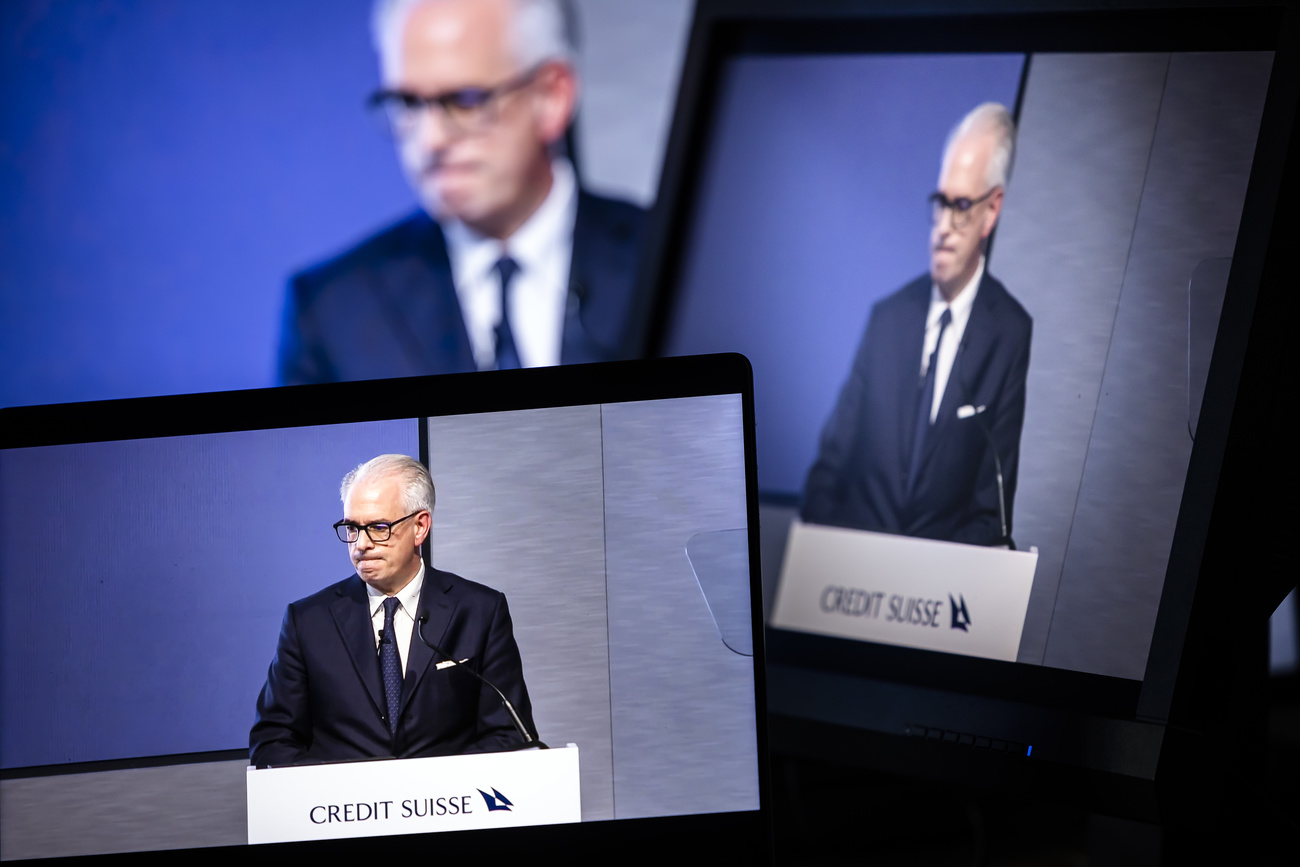‘An untenable equity story’: what’s next for Credit Suisse?

The bank’s liquidity is not its fundamental problem, rather its business model is unprofitable.
The $54 billion (CHF50 billion) lifeline Credit Suisse negotiated from the Swiss central bank on Wednesday night was meant to act as a “circuit breaker” on the stricken lender’s woes, according to people involved in the talks.

But by close of play on Thursday, the bank’s shares still traded 11% below where they started the day before. The drop in its credit default swaps — a measure of investor bearishness — and bond yields was also minimal.
For investors, the bank’s liquidity is not its fundamental problem. Instead they worry its business model is unprofitable — a concern that would be exacerbated if clients continued to pull out assets.
That’s why — following the collapse of Silicon Valley Bank and after Credit Suisse’s biggest shareholder said it would not be increasing its investment — questions are being asked about the Swiss bank’s future.
The options on the table if deposits keep being pulled include tearing up its radical restructuring plan, spinning off its Swiss unit, a full blown takeover or, in a worst-case scenario, the resolution of the bank.

More
Credit Suisse rescue: What does it mean for Switzerland?
A current large shareholder in Credit Suisse said the central bank intervention had relieved some immediate pressure for the group, but it needed to use the time to make more profound changes.
“There is a scenario where they muddle through like this and maybe it gets them through the next few months or year or two — but that’s very risky,” he said.
“If any other unexpected things come along they will be vulnerable. It’s an untenable equity story.”
Muddle through or rethink
Credit Suisse executives say they are intent on executing a restructuring plan, which is meant to switch capital and resources away from the lossmaking investment banking arm and towards domestic, wealth and asset management units.
But investors remain wary, especially over the lack of clarity over what exactly the bank will sell. This month the FT reported that longtime top shareholder Harris Associates had sold its entire position over the “cumbersome and far more costly” plan to hive off the investment bank.
A change in course would represent a third strategic plan for the group in less than 18 months — and would hit the credibility of the management team and chief executive Ulrich Körner.
But some board members are already starting to question whether it is needed.
Break up
A more drastic move would be for the Credit Suisse board to revisit a plan championed by former chief executive Tidjane Thiam and spin off the domestic universal bank.
Thiam was close to listing 25% of the business in 2017 but the deal was aborted after board members and investors became skittish about selling off the bank’s “crown jewel”.
Analysts estimate that selling off the Swiss unit could raise up to CHF15 billion — nearly twice the bank’s current market value of CHF7.7 billion.

More
Where did it all go wrong for Credit Suisse?
The move would be a big departure from the restructuring plan, which puts the Swiss business and wealth management arm at the centre of what is referred to internally as the “new Credit Suisse”.
It would also bring a de facto end to the bank’s 167 years as a national champion, dating back to its days financing Switzerland’s railways and developing its currency.
There may also be some interest from rivals or other investment groups in buying the bank’s CHF402 billion asset management division, which has managed to weather the storm from its damaging links to specialist finance firm Greensill Capital relatively unscathed.
Takeover
In a call with several hundred JPMorgan clients on Wednesday, JPMorgan analyst Kian Abouhossein said Credit Suisse’s most likely destiny was a takeover by its great Zurich rival UBS.
A merger between Switzerland’s two biggest banks has long been discussed internally by both boards, but the fear of hitting antitrust barriers has prevented talks from progressing.
Yet Credit Suisse’s current plight has led to speculation that the old plans could be dusted off if regulators felt it was the best way of stabilising one of the country’s most important financial institutions.
Last month a person involved in UBS’s war-gaming told the FT that the bank remained on alert for a “999” emergency rescue call from the Swiss government. “The country is committed to a two-bank model, but we would be naive not to prepare for it,” they said.
Under the scenario presented by Abouhossein, if UBS did take on the business, it would IPO Credit Suisse’s Swiss business, wind down the investment bank and retain the wealth and asset management arms.
But for executives at UBS, who are focusing on growing the group’s US wealth business and catching up with Wall Street bank valuations, a Credit Suisse acquisition would be too distracting.
“Regulators would not want to see UBS take it on either, as it would create too much risk in one entity,” said the person involved in UBS strategy. “They would be creating something that could never be killed.”
Another mooted tie-up is a takeover by Deutsche Bank.
A person familiar with internal discussions at the German lender said executives would be more interested in picking up bits of the business and were not actively pursuing any deal.
Resolution
If no buyer is found, the Swiss National Bank may feel it has little option but to take more drastic measures.
Under one extreme scenario, the central bank could step in to guarantee the deposits, take full control of the business, sell parts off and wind the rest down.
But such a move would be politically risky, given the impact on Swiss taxpayers, not to mention the ignominy of one of the country’s biggest companies being brought down.
“Regulators are going to be looking very closely at whether the Credit Suisse plan is showing signs of working — if not, they will act,” said a senior executive at a rival Swiss bank. “Credit Suisse has no control over its own destiny.”
Additional reporting by Olaf Storbeck
Copyright The Financial Times Limited 2023

In compliance with the JTI standards
More: SWI swissinfo.ch certified by the Journalism Trust Initiative












You can find an overview of ongoing debates with our journalists here . Please join us!
If you want to start a conversation about a topic raised in this article or want to report factual errors, email us at english@swissinfo.ch.